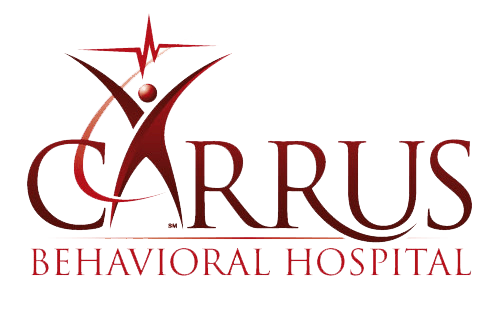
Mental health is an issue of growing concern, particularly for children and adolescents. If you’re a parent trying to navigate the maze of mental health services, you must understand outpatient behavioral therapy as it is the crucial first step in your child’s journey towards better mental health.
Let’s discuss outpatient behavioral therapy, what it involves, and what common mental health issues it can treat.
What is Outpatient Behavioral Therapy?
Outpatient behavioral therapy is a structured form of mental health treatment for children, adolescents, or adults dealing with mental health issues. Unlike inpatient treatment, outpatient therapy allows individuals to attend sessions in a clinic, hospital, or community center and then return home the same day.
It’s designed for those who do not require 24-hour care and can manage the ups and downs of everyday life with some professional support.
The Types of Outpatient Behavioral Therapies
Outpatient behavioral therapy encompasses various therapeutic models, each tailored to address specific conditions and individual needs. Here are some prevalent types:
Cognitive Behavioral Therapy (CBT)
CBT is a widely used approach focusing on how your child’s thoughts, feelings, and behaviors are interconnected. Adolescents can learn to reframe negative thinking and engage in positive behavioral responses by identifying and challenging negative thought patterns. CBT is particularly effective for treating anxiety, depression, and PTSD.
Dialectical Behavioral Therapy (DBT)
Initially developed to treat individuals with borderline personality disorder, DBT has shown effectiveness for a variety of mental health conditions. It combines standard cognitive-behavioral techniques with strategies like distress tolerance, mindfulness, and acceptance.
Play Therapy
For younger patients, play therapy is a common tool for addressing emotional and behavioral difficulties. It allows children to express themselves non-verbally through play, a natural medium for their age group and is led by a therapist trained in this modality.
Common Mental Health Issues Addressed with Outpatient Behavioral Therapy
Outpatient behavioral therapy is a versatile treatment approach that can address a wide range of mental health conditions. Here are some common conditions that this form of therapy can effectively manage:
Anxiety Disorders
These disorders cause excessive worry or fear. Cognitive-behavioral therapy (CBT) and dialectical behavior therapy (DBT) are commonly used in outpatient settings to help individuals manage their anxiety.
Obsessive-Compulsive Disorders (OCD)
Outpatient therapies like CBT can be beneficial for individuals with OCD, helping them to manage obsessions and compulsions.
Depression
Outpatient behavioral therapy is often prescribed for those struggling with depression. It can help individuals challenge negative thought patterns and develop healthier coping mechanisms.
Eating Disorders
Therapies such as CBT can help individuals with eating disorders address distorted body image and unhealthy eating behaviors.
Bipolar Disorder
Bipolar disorder, characterized by extreme mood swings, can also be managed effectively with outpatient treatment.
Post-Traumatic Stress Disorder (PTSD)
Outpatient behavioral therapy can help individuals with PTSD process traumatic experiences and reduce symptoms.
Substance Abuse
Outpatient treatment can support individuals dealing with substance abuse issues, providing therapy and medication management as needed.
Anger-Related Disorders
Behavioral therapy can provide individuals with strategies to manage and express anger in healthier ways.
What to Expect from Outpatient Behavioral Therapy
Here’s what to expect from an outpatient behavioral therapy session.
The First Session
The first session, often called an intake evaluation, serves as a meet-and-greet between your teen and the therapist. During this session, you can expect questions about your teen’s personal history, current symptoms, and what your teen hopes to achieve through therapy.
Developing a Treatment Plan
Based on the intake evaluation, your child and therapist will work together to define goals and a treatment plan that outlines how to achieve them. This may include the frequency of sessions, techniques that will be used, and expected duration of therapy.
Regular Sessions
Regular appointments, typically held once a week or every two weeks, allow teens to address the problems pinpointed in the treatment strategy. Preparing your teens to discuss their thoughts, feelings, and experiences openly with the therapist is important.
Maintenance and Relapse Prevention
After making progress in therapy, teens move into the maintenance phase, where they continue to engage in therapy at a reduced frequency. The focus at this stage is often on relapse prevention strategies, ensuring that the adolescent has the tools to sustain their long-term progress.
Recovery and Beyond
In the final stages, your adolescent will work with their therapist to transition out of regular treatment and into a recovery model that supports ongoing recovery. This model could involve periodic therapy sessions, participation in support groups, or engagement with other community resources that foster mental health and wellness.
Outpatient Behavioral Therapy in Sherman, TX
Are you looking for high-quality and compassionate behavioral health therapy services for your child? Look no further. At Carrus Rehabilitation Hospital, we have a team of highly trained therapists who offer personalized outpatient behavioral therapy services designed to meet the unique psychological, social, and emotional needs of children aged 12 to 17.
Our approach focuses on helping young people understand their mental health and equipping them with positive coping mechanisms and treatments that will serve them throughout their lives.
To learn more about our outpatient behavioral therapy for children or to schedule a consultation, contact us today at (903) 870-1222 or fill out our online appointment request form. We look forward to serving you!

